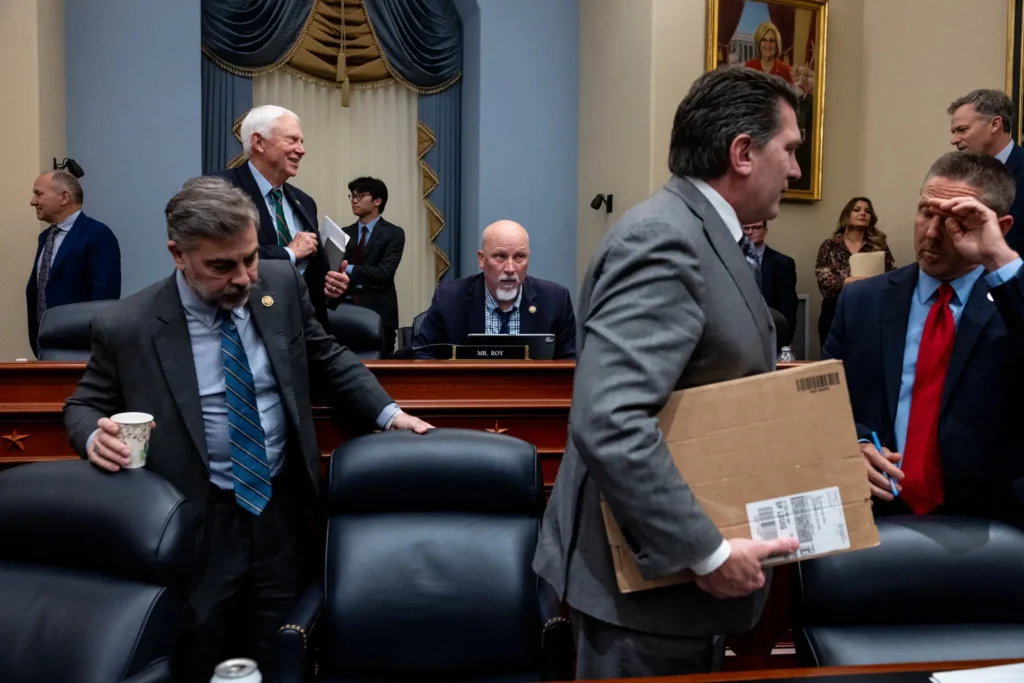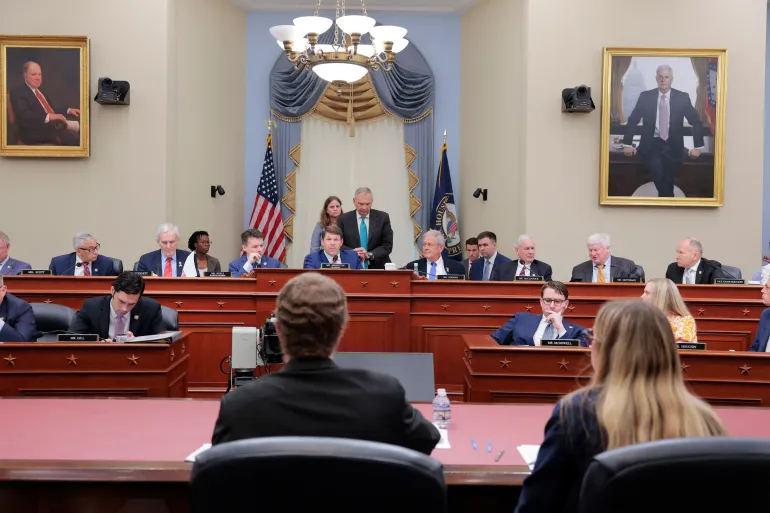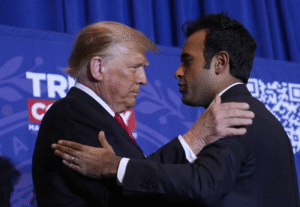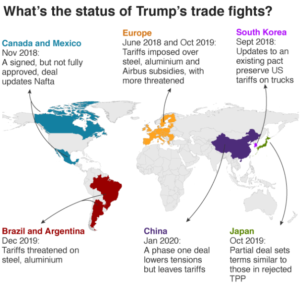One Big Beautiful Bill: Trump’s Bold Economic & Immigration Agenda
President Donald Trump’s ambitious legislative package, dubbed the “One Big Beautiful Bill,” aims to reshape America’s economic and immigration landscape. However, internal divisions within the Republican Party threaten to derail this comprehensive agenda. The bill’s fate hangs in the balance as fiscal conservatives push back against key provisions.
1. The Pillars of the “One Big Beautiful Bill”
The “One Big Beautiful Bill” encompasses a range of initiatives designed to bolster the U.S. economy and strengthen national security. Key components include:

- Tax Reforms: Extension of the 2017 tax cuts, tax exemptions on tips and overtime, and increased deductions for seniors.
- Immigration Policies: Enhanced border security measures and stricter immigration enforcement.
- Energy Initiatives: Provisions to boost domestic energy production and reduce reliance on foreign oil.
These measures aim to stimulate economic growth, create jobs, and reinforce America’s position on the global stage.
2. GOP Infighting: A Barrier to Progress
Despite the bill’s comprehensive scope, internal disagreements within the Republican Party have stalled its progress. Five GOP lawmakers—Reps. Chip Roy, Ralph Norman, Josh Brecheen, Andrew Clyde, and Lloyd Smucker have expressed concerns over fiscal responsibility and procedural issues. Their opposition centers on the bill’s cost and the need for stricter Medicaid work requirements.
Former House Speaker Kevin McCarthy criticized these lawmakers, labeling their actions a “real misstep” that undermines party unity and jeopardizes the bill’s success. The ongoing negotiations highlight the challenges of balancing conservative principles with legislative pragmatism.
3. Broader Implications: Trade, Diplomacy, and Environmental Concerns
Beyond domestic policy, the “One Big Beautiful Bill” intersects with broader geopolitical and environmental issues:
- Trade Relations: Treasury Secretary Scott Bessent announced that the U.S. would reinstate higher tariffs on countries that fail to negotiate trade deals in good faith, reinforcing Trump’s protectionist stance.
- Middle East Diplomacy: Trump’s recent tour of Saudi Arabia, Qatar, and the UAE resulted in significant business and military agreements, signaling a shift in U.S. foreign policy priorities.
- Environmental Impact: Plans to construct a new border wall segment in Arizona’s San Rafael Valley have raised concerns among conservationists about potential threats to wildlife and biodiversity. (The Guardian)
These developments underscore the interconnectedness of domestic legislation with international relations and environmental stewardship.
4. Ethical Questions: Foreign Gifts and Government Oversight
Ethical considerations have also emerged amid Trump’s policy initiatives:
- Foreign Gifts: Senator Rand Paul expressed concerns over Trump’s potential acceptance of a $400 million luxury jet from Qatar, citing possible conflicts of interest and national security implications.
- Inspector General Dismissals: Trump’s firing of at least 17 inspectors general across various federal agencies has sparked debates about government oversight and accountability.
These actions have prompted calls for increased transparency and adherence to ethical standards within the administration.
5. Public Response and Political Ramifications
The public’s reaction to Trump’s policies has been polarized:
- Protests: The “50501 movement,” a grassroots organization, has organized nationwide demonstrations opposing Trump’s policies, advocating for government accountability and the protection of minority rights.
- Legal Challenges: Trump’s attempt to end humanitarian parole for over 500,000 immigrants from four countries is currently under review by the Supreme Court, highlighting the legal complexities of immigration reform.
These responses reflect the contentious nature of Trump’s agenda and its potential impact on the 2026 midterm elections.
Conclusion: Navigating a Divided Political Landscape
The “One Big Beautiful Bill” represents a bold attempt to redefine America’s economic and immigration policies. However, internal GOP divisions, ethical concerns, and public opposition pose significant challenges to its enactment. As the nation approaches the 2026 midterms, the bill’s success—or failure—will likely influence the political landscape for years to come.
Subscribe to trusted news sites like USnewsSphere.com for continuous updates.
[USnewsSphere.com / nyp]





